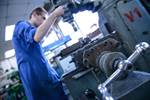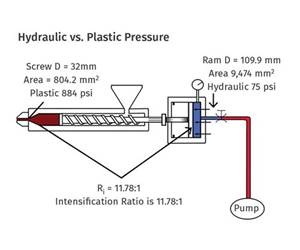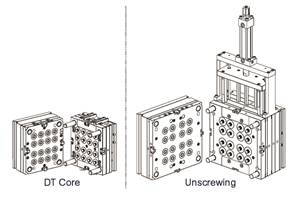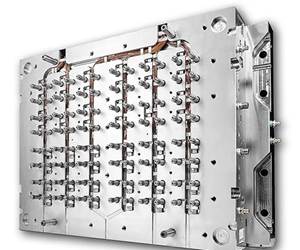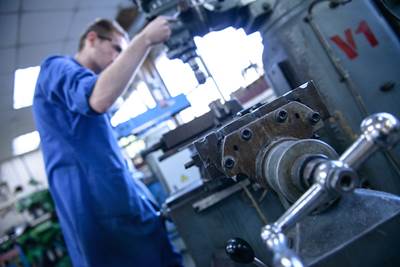How Can UK Mfg. Respond to the Triggering of Brexit, Article 50?
With Article 50 now activated, Brexit isn’t something that may happen, it’s here and we now rely on the U.K. Government and economists to get the best deals for Britain.
Here, Paul Edwards of British injection molder and moldmaker Pentagon Plastics, discusses his own response to Article 50 as a manufacturing business owner, and how businesses can make positive strides into a potentially uncertain future (read more on Pentagon’s initial response to the Brexit vote, as well as the VDMA’s response).
Should UK manufacturing businesses panic or embrace it?
With every change there comes an opportunity. Why wouldn’t countries want to deal with the UK and arrange mutually beneficial trade agreements? With free movement of individuals who can fill skills gaps and improve services that companies provide at home and across the globe, everyone benefits. In the UK for instance, we should be proud of the quality of workmanship, level of service and value for money we offer across a wide section of industries.
The headline should be that we’re not an up-and-coming economy tipped to play a part in the global economy of the future. We are already there and have been for many hundreds of years with a proven ability of trading across the world.
However, we cannot sit back because of past successes; we have to prove that we are taking this opportunity to show how great the Great in Britain can be. In short, we should embrace it and take it as a chance to further our continual improvement.
How do we embrace it and get ahead?
Education and apprenticeships
At home, we need to be supported by the government to develop the skills needed to meet future demands. This has to start in schools with a real focus on career paths and opportunities.
Apprenticeships seem to have been away from the political agenda for too long. Perhaps if we follow the model set by Germany in this regard we can solve the shortage of engineers and tradesman we see today.
Edwards:
“I think the apprenticeships should remain as an educational platform supported by National Trade Centres which provide the skills training across the country. These allow those attending to learn a broad base of trade and engineering skills for their first year, before entering employer's facilities for the remaining three years, whilst attending day release at college.
The college could encompass more business studies advice as well to prepare the business leaders of tomorrow. This process worked in the past and I would be surprised if too many apprentice served engineers and tradesmen of today would disagree.”
NVQ qualifications
We still need NVQ qualifications to be delivered for roles such as administration but these could follow a different path to the apprenticeships to offer more choice to those that thrive out of the educational establishment.
School and businesses can work together to encourage young persons into careers where there are home grown skills shortages. This may result in the question on migrant workers being less prominent; however, we should encourage workers to our shores. This system brings a diverse culture and helps us deliver a greater quality and higher service level going forward.
Make investments
In our plastic injection molding sector, there is a reluctance to invest in some situations. Can this be put down to Brexit, or is it a much wider held issue? If so, is it an aversion to risk and a mentality to save for a rainy day? Potentially.
At present, money for investment is available from banks and other financial institutions. With low interest rates, this could be used to invest in new technology, research and development, marketing strategies and good customer relationships. In short, every aspect that will result in growth and profit.
This could make UK manufacturing leaner and stronger, whilst putting the structures in place to improve the services offered, creating a resurgence and upturn.
Build on past successes
It’s almost certain that strong companies will ride out any uncertainties and become stronger, and unfortunately, smaller companies may struggle and eventually cease trading. However, this has always been seen as the plastics industry is competitive; it is the business life cycle.
This mirrors the cyclical nature of our economy; a recession builds, we’re in recession, we’re coming out of recession, then it starts over again. Fortunately it is a slow churning 10- to 12-year cycle. Nevertheless, this process is predictable and can be planned for to minimize fallout.
The reputation and strength of the plastics industry in the UK puts us in a positive position for trade and in February this year, The British Plastics Federation (BPF) met with MPs to discuss the industry's interests and the best possible outcomes from Brexit. At each venture, we should ensure our voices and concerns are heard.
Summary
“I cannot measure what would have happened had we voted to stay in so it serves little purpose to worry,” Edwards says. “We are leaving and need to embrace it, which includes:
- Getting the best deals we can
- Trusting in our own abilities
- Bringing in young people to fill essential roles
At the same time, we must continue to welcome and encourage migrant workers that can add to our economy in the future. We are leaving the EU but we will always be part of Europe.”
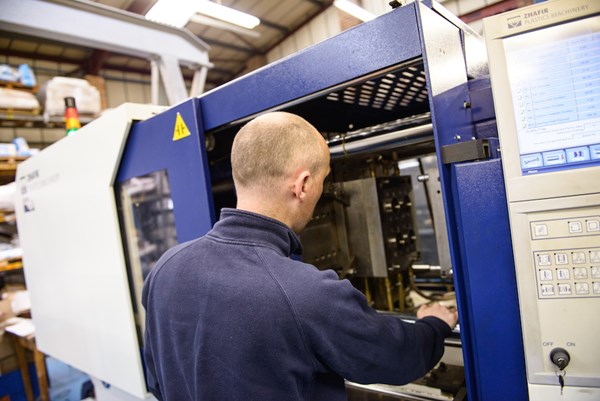
Related Content
Best Methods of Molding Undercuts
Producing plastics parts with undercuts presents distinct challenges for molders.
Read MoreHow to Get Rid of Bubbles in Injection Molding
First find out if they are the result of trapped gas or a vacuum void. Then follow these steps to get rid of them.
Read MoreHow to Optimize Pack & Hold Times for Hot-Runner & Valve-Gated Molds
Applying a scientific method to what is typically a trial-and-error process. Part 2 of 2.
Read MoreRead Next
Pentagon Plastics Discusses UK Reshoring, Impact of Brexit
Injection molder Pentagon Plastics provides an update on the reshoring movement in the UK and what role Brexit will play going forward.
Read MorePentagon Plastics Discusses UK Reshoring, Impact of Brexit
Injection molder Pentagon Plastics provides an update on the reshoring movement in the UK and what role Brexit will play going forward.
Read MoreLead the Conversation, Change the Conversation
Coverage of single-use plastics can be both misleading and demoralizing. Here are 10 tips for changing the perception of the plastics industry at your company and in your community.
Read More
